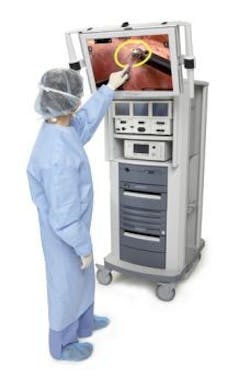The other side of robotic surgery (and robots in general)
Lately we’ve done a good amount of pointing out the merits of robots and robotic-related applications that can improve processes, technologies, and even lives. But on the other side of that, in the interest of being fair and showing both sides of the coin, is the danger that using robots in certain applications can bring. In this case, it is the peril of using robotic-assisted technologies in surgery.
A few months back, we reported on Intuitive Surgical’sFDA 510(k) clearance for expanded use of its da Vinci Fluorescence Imaging Vision System (Firefly) in gallbladder surgery. The da Vinci Surgical System is a robotic surgical system which enables surgeons to perform complex surgeries with a minimally invasive approach. While the idea and concept of the system is novel and innovative, a recent Bloomberg article indicates that dozens of injuries involving the da Vinci system have gone unreported throughout the past few years, opening up questions for the FDA.
The article explains that 45-year-old Sheena Wilson underwent robotic surgery for a hysterectomy in May, and subsequently suffered bad burns as a result. Had she known that there were other people who suffered injuries as a result of the Intuitive Surgical system, she would have never done the surgery, she told Bloomberg.
Now, the case could be made here that this has as much to do with adverse event reporting as it does with the actual surgical system, but that is an entirely different argument. In this case, I am taking a look at the numbers involving robotic surgery mishaps. According to the article, the FDA received 3,697 adverse reports involving deaths, injuries, or malfunctions linked to robotic surgery procedures in 2013 through Nov. 3, compared with 1,595 in all of 2012. But again, these are just the reported events, with many adverse events going unreported.
Robots can and will find ways to help humans moving forward. But in what other applications or industries, if any, could the use of robots potentially harm people? Or at least pose a risk? Questions worth thinking about…
This is not a condemnation of robotic surgeries by any means, but more of a heads up, if nothing else. As robots begin to make their way into new applications and perhaps revolutionize the way we work and live, more articles and thoughts like this may begin to find their way into the news. Hopefully, this is not the case, but this should serve as a reminder that robots likely aren’t going to be taking your job. For now, anyway.
About the Author

James Carroll
Former VSD Editor James Carroll joined the team 2013. Carroll covered machine vision and imaging from numerous angles, including application stories, industry news, market updates, and new products. In addition to writing and editing articles, Carroll managed the Innovators Awards program and webcasts.
